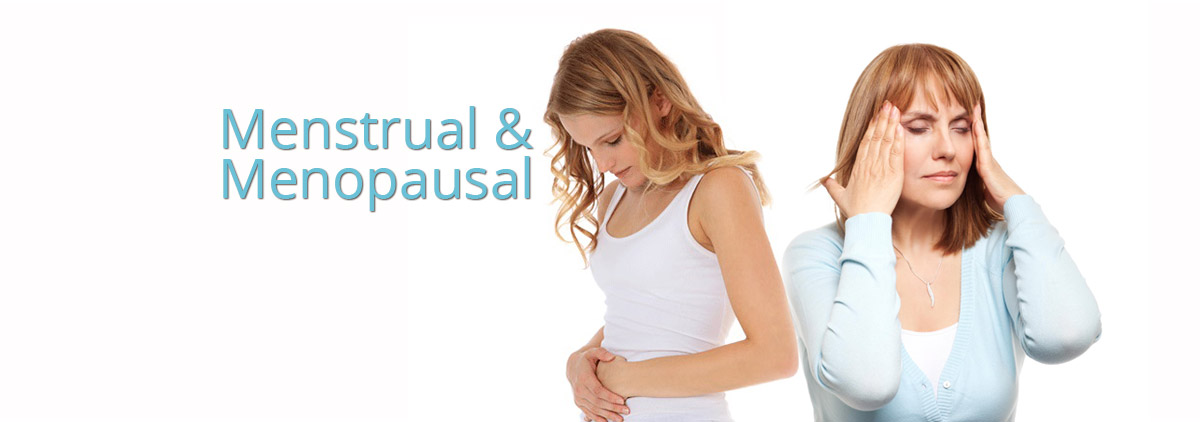Premenstrual Syndrome
Many menstruating women assume that period pain is part of being a woman and therefore put up with it using pharmaceutical drugs such as pain killers and the contraceptive pill on a long term basis. Period pain is part of what we call Pre-menstrual Syndrome (PMS). Though PMS is common, it is not normal and certainly not healthy. Menstruating women experience PMS symptoms including period pain, headache, mood swings, bloating, fluid retention, cravings, constipation, diarrhoea, abnormal bleeding and irregular cycles. A healthy menstrual cycle is approximately 28 days long and a bleeding period that runs smoothly for about 5 days without major discomfort. A healthy cycle reflects a healthy hormonal system and healthy organ systems. In PMS, unless the underlying causes of a problem are addressed, most of the time the condition will stay.
Menopausal Syndrome
When women get to about 50 years of age, there is normal hormonal decline leading to a gradual cessation of menstruation thus the term ‘Menopause’. In healthy women, there should not be any major noticeable discomfort. Menopausal Syndrome comprises a long list of symptoms such as hot flushes, night sweat, insomnia, high blood pressure, low moods, weight gain and osteoporosis. Hormonal imbalance results in one or more of these symptoms making this transition very unpleasant for some women especially in the West. Because conventional hormonal replacement therapies are not without their side effects, increasingly women are seeking alternative solutions to this condition.
Both menstrual and menopausal syndromes are real and can be debilitating. According to Traditional Chinese Medicine (TCM) principles, PMS can stem from Yin Yang imbalance, stagnation of Liver Qi (Vital Energy) and Blood, deficiency in the Kidney system, Spleen Qi deficiency, among others. These are TCM jargons that describe imbalance in the body system caused by genetic makeup, stressful lifestyle, poor eating habits, emotional trauma, sleep deprivation, ageing, weak digestive system, to name a few.
Research
One randomised controlled trial (Ref:1) was conducted to test the effectiveness of acupuncture for women with PMS symptoms such as anxiety, insomnia, gastrointestinal disorders and headaches. The success rate in improving in the PMS symptoms was 77.8%, compared to 5.9% in the placebo group. The improvement was ascribed to its effects on the serotoninergic and opioidergic neurotransmission that modulates psychosomatic functions.
A systematic literature search (Ref: 2) was conducted on randomised controlled trials of herbal medicine such as Xiao Yao San and gingko and traditional acupuncture and ear acupuncture for PMS. The results show that experimental groups had significantly reduced symptoms of PMS in women.
Another randomised controlled trial (Ref: 3) was conducted to investigate the efficacy of acupuncture for 70 women with menopausal symptoms. The acupuncture points used were CV3, CV4, LR8, SP6 and SP9. The treatment produced a clinically relevant reduction in moderate-to-severe menopausal symptoms during a six-week intervention.
References
- https://www.ncbi.nlm.nih.gov/pubmed/12410369
- https://www.ncbi.nlm.nih.gov/pmc/articles/PMC3898234/
- https://bmjopen.bmj.com/content/9/1/e023637





